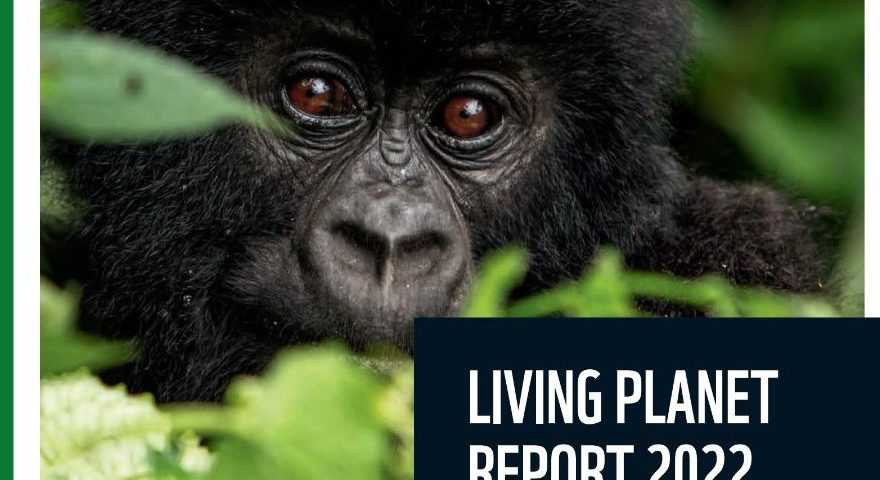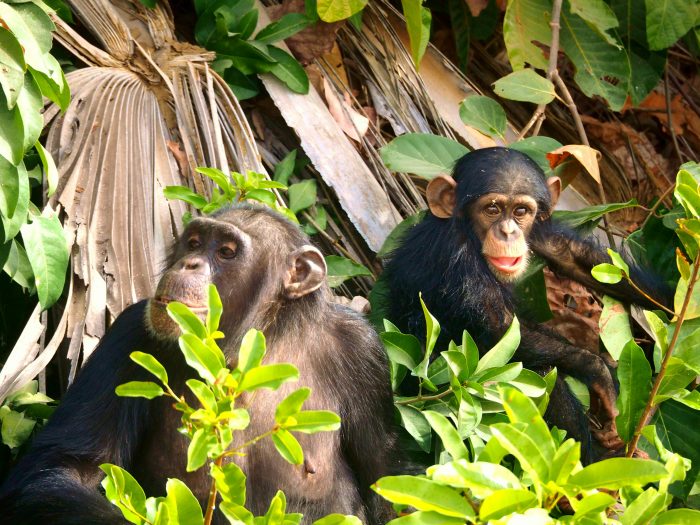
O Relatório Planeta Vivo – WWF revela uma queda devastadora de 69% na vida selvagem apenas nas últimas cinco décadas
18 de outubro, 2022
To always reflect about what you eat
10 de janeiro, 2023WWF’S Living Planet Report reveals 69% drop in wildlife populations in the last five decades

By Jaqueline B. Ramos
Gland/Vienna: This past week, NGO WWF made an alarming disclosure, to say the least. Monitored wildlife populations – mammals, birds, amphibians, reptiles and fishes species – have suffered an average 69% decline in their populations since 1970.
The data are presented in the Living Planet Report (LPR) 2022, which highlights a devastating picture and urgently alert governments, companies and the people in general to take action to reverse this imminent destruction of biodiversity.
The database reviewed by the Report – Living Planet Index (LPI) – is the largest one registered, covering nearly 32,000 populations of 5,230 species. It was calculated by the Zoological Society of London (ZSL) and shows that tropical regions are experiencing the fastest rate of decline. The data reveals that between 1970 and 2018, monitored wildlife populations in the Latin America and the Caribbean region have dropped by 94% on average.
With this staggering number and considering the fact that these geographic areas are some of the most biodiverse on the planet, there are plenty of reasons for concern and warnings that a lot needs to change.
Europe
Europe is one of the regions that scores lowest for “biodiversity intactness, but this is not exactly cause for celebration. Much biodiversity had already been depleted by the Living Planet Index’ 1970 baseline year.
So one might get the false impression that the 18% rate shown in this report is not as drastic as in other regions that have been subject to human impact more recently. But the fact is that the downward trend in Europe is still continuing, despite some conservation successes.
The biggest decline among species groups is in freshwater populations – the overall decline is registered at 83%. The most endangered group in the world is the Sturgeon fishes, which, according to a recent release of the IUCN (International Union for Conversation of Nature) Red List, had one species extinct in the Danube River.
The four remaining species that still live in the Danube are highly endangered. These migratory fish have been living on Earth for more than 150 million years and have suffered due to dams blocking their migration routes in the river and sea, and from the impacts of illegal fishing.
“Europe has a lot of good strategies and policies in place to stop biodiversity loss, but it needs more political will and resources to implement them effectively on the ground,” says Beate Striebel-Greiter, leader of the “Sturgeon Initiative”/WWF.
Global economy and nature
According to Marco Lambertini, General Director of WWF International, “We face the double emergencies of human-induced climate change and biodiversity loss, threatening the well-being of current and future generations”.
The NGO hopes that world leaders who will meet at the 15th Conference of Parties to the Convention of Biological Diversity (CBD COP15) in December in Canada will commit to an ambitious agreement capable of reversing biodiversity loss by ensuring a more positive outlook by 2030.
“In the face of our escalating nature crisis, it’s essential this agreement delivers immediate action on the ground, including through a transformation of the sectors driving nature loss, and financial support to developing countries”, Lambertini adds.
“Half of the global economy and billions of people are directly reliant on nature. Preventing further biodiversity loss and restoring vital ecosystems has to be at the top of global agendas to tackle the mounting climate, environmental and public health crises,” points out Dr. Andrew Terry, Director of Conservation and Policy at ZSL.


